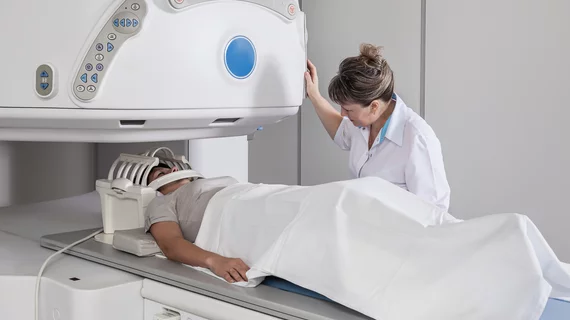Imaging alliance urges FDA to address ‘troubling’ lack of oversight for third-party servicing groups
A leading imaging alliance is calling on the U.S. Food & Drug Administration to ensure third-party medical device servicing businesses are held to the same standards as other servicing groups.
The Medical Imaging & Technology Alliance made their plea Monday with a new white paper titled “Understanding Accountability in Medical Device Servicing.”
The problem, according to MITA, is that while the FDA oversees servicers employed by device manufacturers, and healthcare facilities are held accountable by accreditation systems, third-party organizations are operating within a “regulatory grey area.”
Given the complexity of medical devices, “crystal-clear accountability is indispensable” to ensuring safety standards, noted MITA Executive Director Patrick Hope.
“Unfortunately, no authority—public, private or otherwise—holds third-party servicing businesses accountable for their actions or the quality and safety of their work,” he added in a statement on Feb. 8. “When interacting with highly complicated medical devices designed to detect life-threatening disease, this is troubling, to say the least.”
MITA’s whitepaper delves into the types of organizations and entities that conduct device servicing and outlines the extent to which they are held accountable by federal regulations, accreditors and voluntary industry standards.
For example, the FDA is primarily responsible for overseeing original equipment manufacturers, enforcing strict pre- and post-market standards such as registration, adverse event reporting and maintaining quality management systems. Accreditation groups, such as the Joint Commission, meanwhile, oversee servicers hired directly by healthcare organizations.
Third-party groups don’t have these same checks and balances and are beholden only to voluntary standards, according to MITA.
The imaging lobbying group, therefore, wants such entities to adopt a minimum quality system that conforms with the Code of Federal Regulations Title 21 Part 820. This would ensure such organizations are registered with the FDA, required to report notable malfunctions and any deaths and serious injuries, according to Hope.
“If there is any takeaway from this document, it is that patients assume and deserve safe servicing,” he added. “They should have confidence that the devices from which they are receiving care always perform safely and effectively, no matter who has been servicing the device.”

